Updated Khoodeelaar! No to Crossrail hole AGENDA, commentary by ©Muhammad Haque at 1400 Hrs GMT Sunday 6 April 2008:
The very first Khoodeelaar! demo was held in the Greatorex Street, London E1 on Friday 22 October 2004
It had followed the corrupt and the dishonest behaviour by the controlling clique on Tower Hamlets ‘local’ Council. Had the corrupt clique been honest and had it listened to the local community then there would be no demonstration, there would be no Crossrail hole attacks on the community. But the corrupt clique that has been in control of the ‘local’ Council, has been misbehaving in lying about what the Crossrail hole threat is, about what the clique itself has been ‘doing’ about it .. In fact, in the course of the past 4 years and 3 months of the Khoodeelaar! campaign, the corrupt clique on Tower Hamlets Council has been found out on too many occasions as being engaged in lying to the community for Big Business... The policies of the corrupt clique are destroying whatever there was by way of ‘public’ provisions for the community. and of social and community fabric .. From hostile local environment to undermined and privatised housing, from undermined neighbourhood identity, solidarity and support to lowering community cohesion and criminality, from abysmal school results to lack of credible educational facilities, from orchestrated disrespect to promoted disaffection, Tower Hamlets is being reduced to an even more deprived and disenfranchised place in 2008 than it was 10 years ago... And at the centre of these debasing movements is the controlling clique on the ‘local’ Tower Hamlets Council..........And the clique’s continuing collusion with Bechtel and other Big Business interests that are pushing the Crossrail hole agenda shows that Tower Hamlets is NOT the ‘local’ Council, that is and has become a touts’ council. All manner of corrupt elements are in place among and across the Council’s employed and contracted personnel....
.[To be continued]
______________________________________________
The Guardian Unbelievable website [carrying the 'Observer'] is admitting that Crossrail hole plot-backer Ken Livingstone has been guilty of fantasy
The first part of today’s
MUHAMMAD HAQUE ethical commentary on the immoral and the corrupting state of Gordon Brown-fronted Blaired Britain on Sunday 6 April 2008
1012 Hrs GMT 1112 Hrs UK time London Sunday 6 April 2008:
Khoodeelaar! Told you so! EVEN the pernicious lying Guardian Unbelievable ‘group’ is admitting that Crossrail hole plot-peddler Ken Livingstone had been over-exaggerating the importance of London as the 'financial world class' centre!
True!
The Guardian unbelievable does not use the words ore the phrases that Khoodeelaar! has been using to dissect and to expose the lies of Big Bigness ‘chum’ and Crossrail hole, Bechtel-agenda-tout Ken Livingstone.
But the bottom line is admitted.
And that is what makes the difference. Not that the Guardian unbelievable will make the difference,.
But the fact that even they are having to confess to having lied all those times when they allowed the Lyingstill to utter variations of the same lying theme - which went something like this, ‘Crossrail is vital to the world class capital city of London.
That without CrossRail, London will lose the world class status…’
. Of course the Guardian Unbelievable will take several more years before it makes a substantial confession about the other aspects of the corruptor of London’s touting propaganda for the antisocial, immoral, grubby, grabbing, looting Big business forces and their varieties of miniature agents, touts and surrogates
For instance, the Guardian Unbelievable will not admit that Livingstone's alleged opposition to the expansion plan for Heathrow airport in fact gave the lie to Livingstone’s claim that Crossrail was important because one of the three ‘pillars’ [notice, three pillars] on which the CRASSrail plot has been stood, if it ever stood on any rational, true basis, was the claim that it [Crossrail] would provide ‘vital business link to Heathrow’.
If the package of ‘arguments against Heathrow’ which the bona fide opponents of the expansion [as different from the opportunist, Ken Livingstone-type opponent] have been using and will use is true then the argument that Heathrow is vital as a business travel location also falls……
[Take the argument through all the minute bits,..]
ALSO COMING UP HERE the remainder of the day’s first MUHAMMAD HAQUE ethical commentary on the immoral and the corrupting state of Gordon Brown-fronted Blaired Britain on Sunday 6 April 2008
With an updater on Brian Paddick, the ‘Third’ ‘mainstream’ ‘party’ candidate for the post of ‘mayor of London’ at the still scheduled 1 May 2008 ‘elections’ in London
Why is it that Steve STUPID Richards kept asking Paddick the same question in ten different ways about who Paddick thought would or should be the second preference choice of Paddick’s own first preference voters?
Especially after Paddick had said that he thought neither of the other two was a fit candidate and that he, Brian Paddick, was the best one available?
[To be continued]
AADHIKARonline quoting the Guardian Unbelievable web site piece that contains their confession that Lyingstill Ken Livingstone had been exaggerating the 'world class status' of London...
News
Politics
London elections 2008
Which way will the wheel spin for London?
Whether it's Boris or Ken for mayor, the capital is in a precarious position, writes Nick Mathiason
Nick Mathiason
The Observer, Sunday April 6 2008 Article history
ach night, London's West End heaves with crowds swarming to bars, clubs and restaurants. Shoppers in Covent Garden, Oxford Street and Knightsbridge spill off the pavement while the tube sags under the weight of passenger growth. Theatres and music venues enjoy record receipts, the city's universities are attracting more international students than ever and London's Premier League football matches routinely sell out.
So it's hard to believe that the world's financial centre is standing on the verge of an economic downturn. 'It's like walking around in September or November 1939,' says the London School of Economics' urban guru, Tony Travers. 'War was declared, then nothing happened.'
However, Des Gunewardena, whose firm D&D runs the largest group of upmarket restaurants in the capital, including Skylon, Pont de La Tour and the Orrery, says: 'We are doing a lot better than you might guess from the papers. There's a definite cutback on spending from City firms on parties and events, and some easing off on expensive wine, but overall February was our best month since before the credit crunch.'
An elite group of private equity financiers, hedge fund tycoons and property speculators have created a wave of wealth that has enabled artists, advertisers and high-end retailers to enjoy unprecedented growth.
That growth has been encouraged by Mayor Ken Livingstone, neck-and-neck with Boris Johnson in his bid to win another four-year term. Since 2000, Livingstone has assiduously courted property developers to ensure the City of London and Canary Wharf have enough skyscrapers to house international banks, law firms and other professional service firms. At the same time he has encouraged housing development - the number of homes built in London has nearly doubled since 1999 - to cope with surging demand and an affordability crisis.
Rival mayors and local government officials marvel at Livingstone's ability to persuade central government to pour cash into projects he has championed: the Olympics, the East London Line and Crossrail. He has looked east to meet projected population growth. The reason he persuaded the government to support the Olympics bid was to kick-start development in the Lower Lea valley, where more than 30,000 homes will be built.
But as London plans for growth, most analysts agree that a shake-out is coming. Last week, the Confederation of British Industry said the deepening credit crunch could cost up to 11,000 jobs in the UK's financial services sector as profitability, confidence and business volumes fall. Employment and profitability have fallen at the sharpest rate in five years and optimism has dropped for the third successive quarter.
For Livingstone, a downturn in the City threatens to unravel his grand vision of a city at the forefront of financial innovation. He has undertaken high-profile missions to India and China to encourage firms from the emerging economies to float in the capital. His officials have also gone out of their way to tempt Russian companies to list here.
It has paid off. London accounts for half the trade in global equities and overwhelmingly dominates the international bond market. But fears are growing that an over-reliance on the financial sector, now more vulnerable than at any point in 15 years, could see a domino effect on London's other business sector and, most significantly, its housing market.
Livingstone's challenge is to ensure that there are other viable industries to sustain the capital, though his officials believe the downturn will be temporary. He is pushing ahead with plans to make London a centre of green technology as chair of a collection of 40 of the world's most powerful city mayors who have come together to fight climate change. Livingstone believes the bulk-buying power of cities can stimulate markets in green technology, and a series of programmes are in place to advance this.
Meanwhile, plans for a major sustainable industries' business park in Dagenham, north of the Thames as it passes into Essex, are under way and will form a large part of a third term if he is re-elected. Likewise the life science sector, thanks to breakthroughs at Imperial and King's College.
For 50 years from 1939, London's population fell. The end of its docks, decentralisation of key public-sector functions, lack of investment in housing and transport, and waves of immigration into the inner-London boroughs prompting 'white flight' into the suburbs, created a sense of a city unable to cope with the post-industrial age.
It was the decision by Margaret Thatcher to deregulate the Square Mile, as even 'Red Ken' himself concedes, that sparked a revival in London as a global contender.
The Office for National Statistics projects that London's population will grow by 11 per cent between 2006 and 2026 to 8.7 million as it continues to attract people from overseas. However, there are many who believe the city has reached its zenith, particularly as youth unemployment remains higher than in almost any other part of the country.
Business leaders worry that Livingstone, who they say has been 'pragmatic' and 'business-friendly', may run out of energy if he wins a third term. On the other hand, they worry that Johnson will be a 'figure of fun rather than a figurehead'. The Tory candidate's manifesto for growth and the London economy is sketchy at best. He has watered down his proposals to cut back on London representative offices in key international centres and has made great play of ensuring that the classic views in the city's skyline remain unimpeded by skyscrapers.
By contrast, for Livingstone the future will depend on ensuring the capital keeps ahead of New York, Frankfurt and Shanghai by becoming ever more business-friendly. Sometimes, if you close your eyes, it's almost as if the two rivals have swapped parties."
Subscribe to:
Post Comments (Atom)


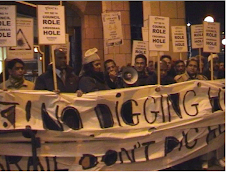
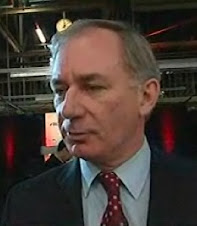




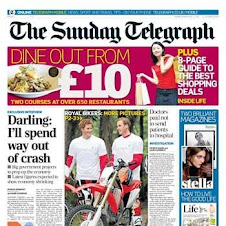




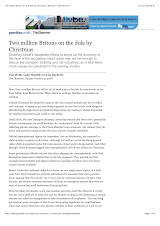





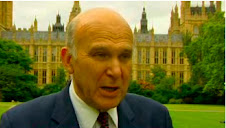

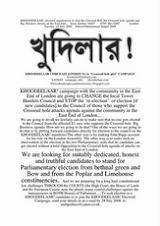

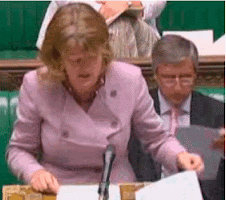




![Khoodeelaar! constitutional law campaign against the 'Crossrail Bill' [a Bill in UK Parliament]](http://2.bp.blogspot.com/_pSmwp9aFK8U/SGqe5VQwLHI/AAAAAAAABfc/MEjjMWby2dc/S226/Khoodeelaar!+try+this+logo.gif)























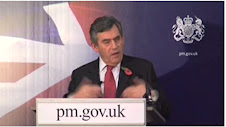


![London [Rupert Murdoched] Times, Wed. 7 May 2008](https://blogger.googleusercontent.com/img/b/R29vZ2xl/AVvXsEitiFRN6uO_MOdYMby0s7ow2zcBaewOKfl3k4QdCPcahu1IKXx6sl7Gs4aO9VrAhN8gQJvYb1a2JnODsTUsMks_LtoZVuqc64whMkMitNKVz1bijPST853uNwRNG8x2PVFl1kqRez8M3b-j/s226/1676149.jpg)















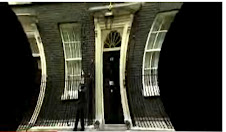

























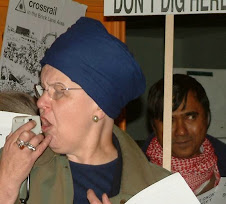
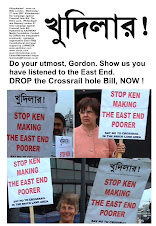



























No comments:
Post a Comment